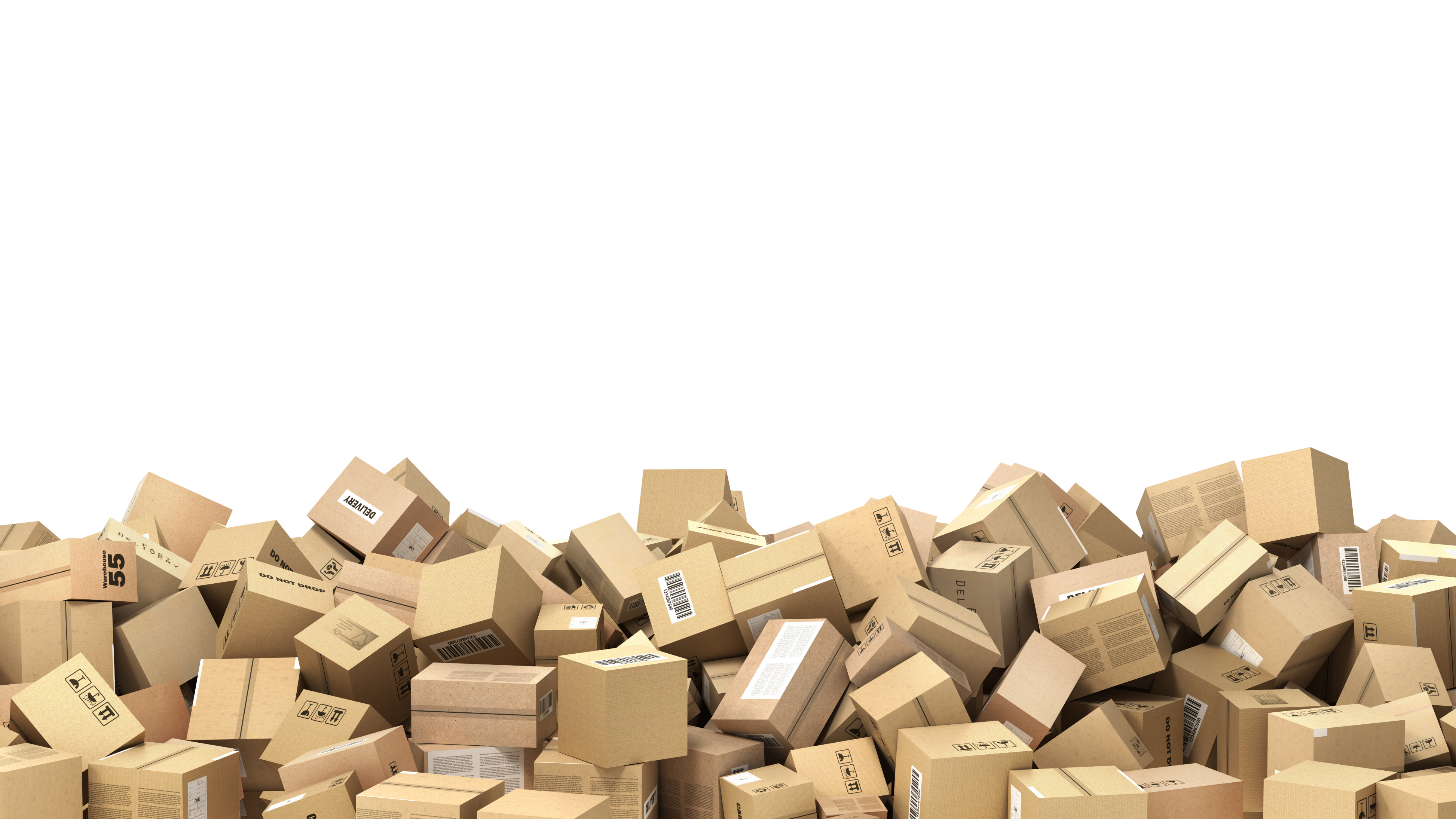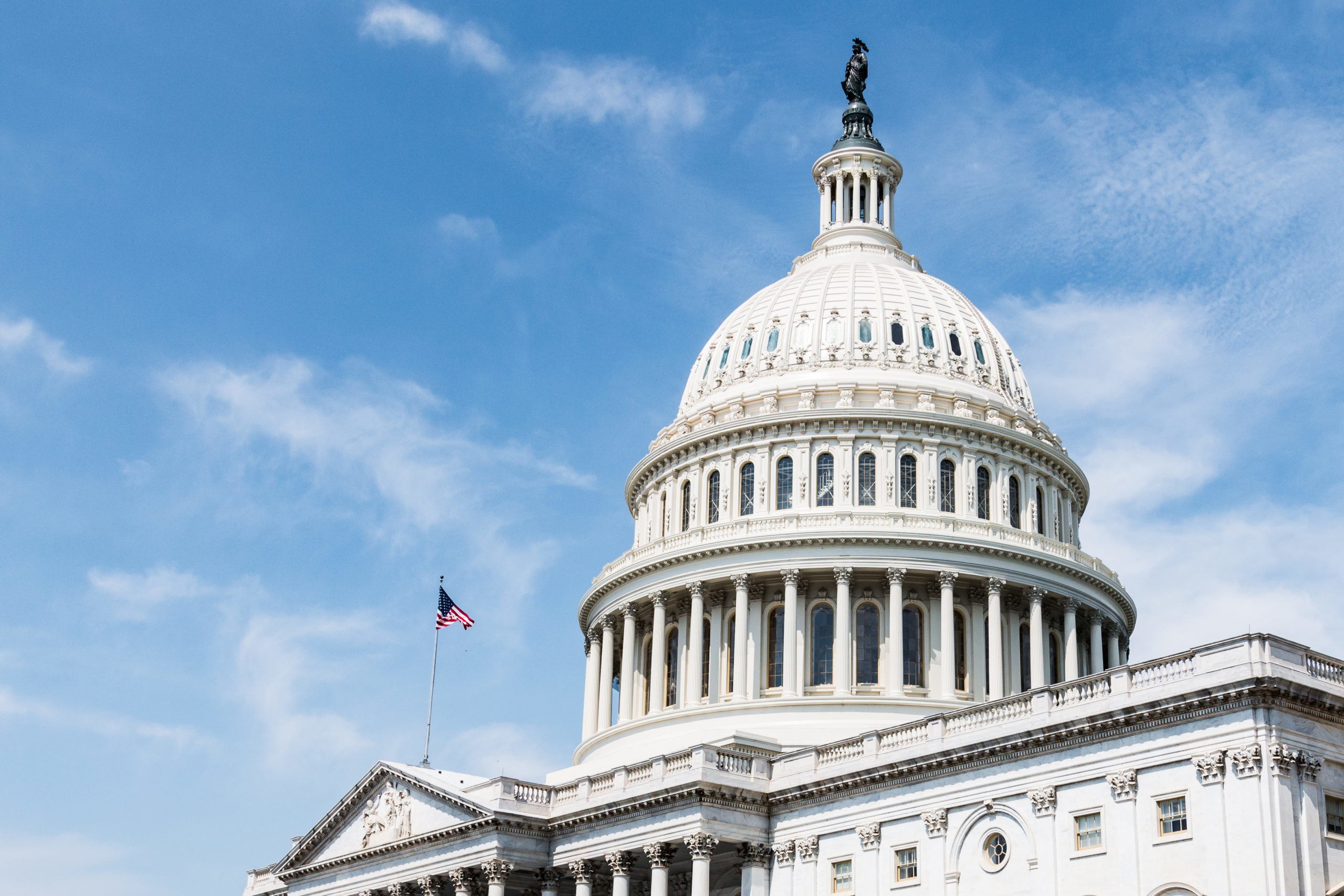
Home | Industry News






CLDA Members are encouraged to share news about their company. CLDA may share on social media, in newsletters or on the website.

Ready to share your news with CLDA or the industry media? Learn from these tips and tricks on how to get noticed.

WITH THE EXIT OF MAJOR CARRIERS, THE COURIER INDUSTRY HAS AN OPPORTUNITY DELIVERING FOR THE GROWING VAPING AND E-CIGARETTE SECTORS
WASHINTON, D.C., April 13, 2021– Recent regulatory changes to the Prevent All Cigarette Trafficking (PACT) Act have created an opportunity for those in the courier industry. The changes make the delivery of vaping and e-cigarettes more challenging, but one industry expert says they also open the door for those in the courier industry.
“These carriers have the flexibility and trust to handle these products,” says Jim Bramlett, Chief Executive Officer at 5 String Solutions in Leawood, Kansas. “These are carriers for the pharmaceuticals industry, so they understand what it takes to operate in this kind of controlled environment.” 5 Strings Solutions offers a network platform that provides real-time data exchange between shippers and their partners. They are active members of the Customized Logistics & Delivery Association (CLDA).
The increased requirements have meant that all of the major carriers are refusing to deliver for the vaping products industry. Not only have UPS and FedEx announced that they will no longer handle these products, but DHL, Lasership and OnTrac are also refusing to work with this industry.
This has caused many online vapor retailers to look for shipping partners among private logistics companies. The new PACT Act law changes went into effect in late March and apply to any carrier that transports vaping and e-cigarette products. The law requires that any carrier that transports these products and delivers them to a consumer’s home must verify the age and identity of the customer at purchase, check IDs, obtain adult customer signature at delivery, and maintain records of delivery sales for four years after the date of sale, among other things.
“Because of these complexities, I believe that this is a space that couriers could jump into,” says Bramlett. “The large delivery companies have been passing on this because it takes too much time to ring the bell, verify that the person signing for this is of age, capture their signature and keep it on file for four years. The big carriers prefer drop and run.”
Bramlett acknowledges that the business may not be right for every courier. “I’ve spoken to some who say, ‘“I’m in the health and life-saving industry delivering pharmaceuticals. I just can’t get there. This doesn’t match with my company’s ethics.’ Others may be put off by requirements the PACT Act puts on them to make sure the products don’t end up in the hands of younger consumers. These are all part of each company’s induvial decision-making processes and obviously have to be considered before taking on this business.”
For those couriers that are not interested in dealing with the restrictions around home delivery, there is another part of this vertical that may be right for them: working with manufacturers to get their products to retailers. “As a rule, these small retailers are only looking at stocking 16 to 18 orders a day,” he says. “Couriers will need to find ways to aggregate those and move them out effectively. Shippers want to use someone who can take it from a central point and take it to, say Los Angeles, and then have someone else (a courier) take it to retailers. This part of the last-mile supply chain is a very comfortable place for couriers. They are used to managing these kinds of challenges. Customized deliveries are what they do.”
“The members of this industry are known for their ability to adapt to the unique demands of shippers. For those who are interested in pursuing it, this could be an opportunity,” says CLDA President Steve Howard.
Bramlett believes the courier industry has an opportunity with these deliveries if they can create systems to manage the extra requirements imposed by the PACT Act. “This is a wake-up call to the courier industry,” he says. “This business is yours for the taking and there’s more behind it. Regional couriers are experienced in the challenges of working with controlled substances, nimble enough to adapt to their requirements and fueled by the creativity that has always characterized this industry.”
About the Customized Logistics and Delivery Association
The Customized Logistics and Delivery Association (CLDA) is a non-profit professional association that connects and leads members of the time-critical logistics and delivery industries. The association serves the needs of its 2,900 essential service members who are logistics professionals, carriers, shippers, drivers, air cargo logistics providers, 3PLs and vendors servicing today’s supply chain companies. The CLDA gives its members access to a diverse network of logistics professionals looking to create new business opportunities and share decades of practical insights. They provide an avenue for amplifying members’ voices on key issues and helps them participate in the regulatory discussions shaping the industry. The CLDA keeps members informed and educated on trends, current issues and best practices.
Media Contact
Andrea Obston aobston@aomc.com
(860) 243-1447 – office
(860) 803-1155 – cell
WASHINGTON, D.C. Feb. 22, 2021 — Last-mile company executives may be able to get their drivers the COVID-19 vaccine right now regardless of their age. One owner of a courier company created that opportunity, and now all of his drivers who wanted to be vaccinated have received it.
Ben Kaplan, the owner of Rightaway Delivery in Romulus, Michigan reached out to one of the bigger hospitals his company serves to make his case. “I called my contact at the hospital and said ‘We’re such a vital part of your operation and we represent you. It’s common sense for you to want our drivers to be protected.’”
Rightaway delivers medications from the hospital’s pharmacy, handles specimens from their labs and makes sure their COVID-19 tests get to the labs to for processing. In all, they work for 20 departments and 120 satellite offices around southeast Michigan for that one hospital.
When Kaplan first made his case to one of his contacts, she said he could only send in the drivers to be vaccinated who worked for her department. “What she didn’t realize was all the other departments in her hospital we take care of,” says Kaplan. “Once I explained that, she realized the smartest thing to do was to protect everyone in our company.”
As a result, Rightaway was able to offer the vaccine to anyone in the company who wanted it. “The lesson for other carriers is to make your case to all of the departments at every hospital you work for, including the clinics and labs,” says Kaplan.
Many Rightaway drivers and employees seized on the opportunity to get vaccinated. “They had a one-week window to fill out the paperwork, and everybody who wanted to got it,” says Kaplan. “It was a personal choice. We could not force people to get it. All I did was offer them the opportunity.” Kaplan, himself, jumped at the chance to get the vaccine.
Reactions from his drivers and employees has been overwhelmingly positive. “They told me they felt very lucky,” he says. “So many have thanked me. The people who wanted shots were pleased. They had been worried.”
He urges all last-mile company executives to do the same. “You should have a good enough relationship with your hospital customers to be comfortable making that request,” he says. “Tell them ‘We represent you. We come into your hospital. We are a part of your operation. Don’t you think we should be considered a priority alongside healthcare workers?’”
Medical work is a critical part of Rightway’s business. Since the pandemic hit, they have been transporting 1,000 COVID-19 tests per day for multiple customers, getting them to local labs or on planes to labs in Kansas City, Salt Lake City and Atlanta. They also pick up and deliver tests to 40 Walgreens on the weekends. It’s all an extension of their extensive work for hospitals, labs and clinics, which is a large part of their business.
Kaplan is on the board of the Customized Logistics and Delivery Association (CLDA), the trade association for last-mile carriers and drivers in North America. Since last December, the association has been reaching out to legislators and government officials to request that their workforces be designed as essential workers and therefore eligible to receive the vaccine on a priority basis. In the initial stages of the pandemic, CLDA’s efforts meant that this industry was declared essential so workers could go to their jobs when stay-at-home orders were in place. However, that hasn’t helped get their workforces access to the vaccine yet.
CLDA reached out to state health departments to put their drivers into the Phase 1b vaccination category. “We asked them to put us in the Phase 1b category as frontline essential workers or to move them up because of the medical importance of their services,” says Michael Taylor, CLDA government affairs director. “The Director of the CDC adopted the recommendations of the Advisory Committee on Immunization Practices (ACIP) that our workforce fit in Phase 1, but ultimately the decision of whether we fit into Phase 1b for frontline essential workers or in Phase 1c for other essential workers is in the hands of each state’s health department. The dialogue has been different depending upon the state. Several states have accepted our position. We urge all members to reach out to their customers on a local level to make things even more likely to happen.”
Kaplan advises other carriers that work in the healthcare environment to do what he did to get his people vaccinated. “My advice is to go ahead and do this on your own. If you’re working with a hospital, why wouldn’t you call? What do you have to lose? And what have you got to gain for your people?”
About the Customized Logistics and Delivery Association
The Customized Logistics and Delivery Association (CLDA) is a non-profit professional association that is the voice of the time-critical logistics and delivery industries. The association serves the needs of its 2,900 essential service members who are logistics professionals, carriers, shippers, drivers, air cargo logistics providers, 3PLs and vendors servicing today’s supply chain companies. Since 1987, CLDA has provided business opportunities, advocacy and education. For more information see www.clda.org.
Media Contact
Andrea Obston aobston@aomc.com
(860) 243-1447 – office
(860) 803-1155 – cell
Yesterday the U.S. Department of Labor’s Wage and Hour Division (WHD) announced the withdrawal of an opinion letter which can impact CLDA members.
Given that FLSA2021-9 offered protections for motor carriers in their utilization of Independent Contractors, its withdrawal means that you no longer have those protections for any DOL actions or audits. As such, please seek legal counsel if you intend to still pursue the now removed protective opinion practices. Learn more.
WASHINGTON, DC, Jan. 4, 2020 –The recent news of the FDA’s approval of two vaccines to fight the coronavirus was met with cheers and sighs of relief. An end to the pandemic appeared to be in sight. But, with that good news came the realities – how would millions of doses of the vaccine get into the arms of Americans who were eagerly awaiting them?
That’s when the role of the supply chain took center stage. The carriers that keep the wheels of commerce (and ecommerce) rolling daily were suddenly thrust into the spotlight. With last-mile delivery companies providing the ultimate keys. These last-mile carriers will be responsible for transporting the vaccines at super-low temperatures; handling them properly and tracking their progress from the manufacturers to the places where they will inoculate consumers. Last mile carriers will also play a role in the critical supply chain that delivers the raw materials that drug companies need to manufacture the vaccines.
What are the challenges of handling these critical deliveries? How will the last-mile carriers meet them? What will they need to do to make the deliveries safely and efficiently? Jason Burns, First Vice President of the Customized Logistics & Delivery Association (CLDA), says the 3,500 companies that provide last-mile deliveries will be the key. Burns is also Director of Corporate development at Dropoff, a company well-experience in cold chain deliveries.
Members of the CLDA are mostly regional carriers who routinely transport pharmaceuticals. It is likely that they will play a key role, especially in the delivery of the Moderna vaccine, which will go through traditional pharmaceuticals’ distribution channels. The Pfizer vaccine, with its uniquely low temperature requirement (-94 degrees Fahrenheit) will go right from the manufacturer to sites uniquely qualified to store it through FedEx and UPS. Last mile carriers may be involved as subcontractors to these two transportation providers.
The Moderna vaccine is shipped at -4 degrees Fahrenheit, which is common for many pharmaceuticals. “The vaccine will be distributed by McKesson, which has a contract with the US government. Doses will be transported through their current supply chain,” says Burns. “Many CLDA members are already essential parts of that system. Their role will be to take the vaccines from local distribution sites to hospitals, clinics, and drug stores where they will be administered. Some of our members will handle the first leg of that journey from the manufacturers to regional hubs, while others will be responsible for transportation from regional distribution centers to local sites. That’s how we expect the Moderna vaccine to be transported since it will be pre-packaged in totes with dry ice and/or frozen cool packs to keep them at optimal temperature. Last-mile providers will transport the sealed totes, much as we handle regular pharmaceutical distribution.”
Delivery of the Moderna vaccine poses other demands. Capacity for one. “Managing capacity will be an on-going challenge,” says Burns. “Over the next few months, the drug has to be supplied to roughly one million people. However, initial distribution of the vaccine took place in the middle of the holiday rush. Under normal conditions, this is already a tough time of year to meet demand due to ecommerce shipments. The pandemic created even more volume during that period during a time when there is normally competition for resources, including drivers and vehicles. Companies had to get creative to find ways to add more capacity and personnel to be successful.”
There’s also the issue of security. “Having a secure chain of custody is critical with all pharmaceuticals, and this is especially important with the vaccine,” says Burns. “Everyone’s aware of the nature of these shipments, including those operating on the black market. Typically, with pharmaceutical operations, the focus is on securing your facility. Having good processes for scanning into the warehouse, loading vehicles and scanning again upon delivery. Some drivers also have cameras on the vehicles for added security measures.”
While the anticipation for this vaccine has put heightened attention on last mile providers, Burns expects this to be one step towards the increasing importance of the role of these carriers in healthcare logistics. “Healthcare will increasingly be delivered in peoples’ homes and the final mile industry will play a key role in making that happen,” says Burns. “I foresee a time in the not-so-distant future where vaccines like this one will be administered in peoples’ homes by medical technicians. Bolstered by the continued growth of telemedicine, in the near-future doctors will supervise healthcare workers through an app or a platform like Zoom while they administer a variety of life-sustaining medications. Or perform tests for COVID or other conditions. The need to develop these delivery systems may have been exposed by the current healthcare crisis. Ultimately, it may be one of the few positive things that comes out of the pandemic.”
About the Customized Logistics and Delivery Association
The Customized Logistics and Delivery Association (CLDA) is a non-profit professional association that is the voice of the time-critical logistics, delivery and express air cargo logistics industries. The association serves the needs of its 3,500 essential service members who are logistics professionals, carriers, shippers, drivers, air cargo logistics providers, 3 PLs and vendors servicing today’s supply chain companies. Since 1987, CLDA has provided business opportunities, advocacy and education.
Media Contact
Andrea Obston aobston@aomc.com
(860) 243-1447 – office
(860) 803-1155 – cell
WASHINGTON, D.C. April 1, 2020 — Couriers must be declared essential service providers in every state for the sake of public safety. Because of that need, today the Customized Logistics and Delivery Association (CLDA) charged each of its members and all members of the industry with contacting their governors to declare their companies Essential Service providers. “Members of this industry must contact their governors immediately to get this declaration before they issue Emergency Orders to shelter in place,” urged CLDA President Steve Howard. “If they wait, it might be too late and the services we provide to keep the supply chain moving could take days or even weeks to start up again. Once governors issue Emergency Orders to shelter in place, they will be shut down and the supply chain will grind to a halt.”
Because of the pleas of couriers in Florida and Washington, state governors of those states have already declared their work as essential services. CLDA members in Minnesota, New York and California have already contacted their governors and expect to get that designation within the next few days.
“We are asking governors in all 50 states to use their offices to declare the courier industry as an “Essential Service” under your peacetime emergency authority,” said Howard. “Courier services throughout this country are absolutely critical to both our current pandemic crisis and our supply chain.”
He pointed out that couriers are already actively engaged in delivering supplies to cope with the current crisis including delivering:
COVID-19 test samples from clinics and testing facilities to labs for diagnosis
Tissue and blood samples to diagnose and treat COVID-19 related illnesses
Pharmaceuticals to residences, assisted living facilities, hospitals and pharmacies.
Diagnostic testing for all other non-pandemic related illnesses
Blood and blood products from blood banks to hospitals and clinics.
In addition, Howard pointed out that courier companies are the essential last-mile delivery providers that support people working at home. “Our members are helping these workers by delivering to homes laptops, printers, offices supplies and needed documents that can’t be emailed,” he said.
The courier industry serves a unique need that national delivery services can’t provide – deliveries in hours, not overnight. “Our customers need our services 24/7/365 for deliveries on an immediate, as-needed basis. Due to the urgent nature of these deliveries they cannot be made by national carriers such as USPS, UPS and FedEx that deliver in days, not hours,” said Howard.
CLDA is offering help to couriers in all 50 states – whether or not they are members of the association – with guidance on how to approach the governors of their states. Any courier may contact CLDA’s Government Affairs Director, Michael Taylor at Michael@clda.org or (703) 623-8995.
“Please contact your governors now,” urged Howard. “The longer you wait, the more difficult it will be and the more likely that the supply chain isbrought to a halt leaving medical providers and consumers in desperate need of critical supplies.”
About the Customized Logistics and Delivery Association
The Customized Logistics and Delivery Association (CLDA) is a non-profit professional association that is the voice of the time-critical logistics, delivery and express air cargo logistics industries. The association serves the needs of its 3,500 members who are logistics professionals, carriers, shippers, drivers, air cargo logistics providers, 3 PLs and vendors servicing today’s supply chain companies. Since 1987, CLDA has provided business opportunities, advocacy and education.
Media Contact
Andrea Obston aobston@aomc.com
(860) 803-1155 – cell
Dear Shipper and Affiliate Partners:
COVID-19 has placed special demands on all of us in the supply chain. As your critical partners together with carriers and forwarders, CLDA wanted to let you know that our members are using the best practices to keep the supply chain responsive and safe. Here is some advice from our members to protect the supply chain and the health of those receiving deliveries:
Advice for carriers and forwarders:
Advice to drivers:
In addition, we urge you to use caution in the words you use with customers and staff to avoid spreading undue concern about this virus. Here is a blog post from the CLDA Director of Public Relations, Andrea Obston, with some advice on how to phrase any messages you put out.
We encourage CLDA Members to offer their services to local EMS officials and local Departments of Public Health to assist them in their response. CLDA Government Affairs Director Michael Taylor is working with Prime Policy Group to send a letter of assistance to the state EMS officials that we will also share with membership. Further, Congress just passed the second of what will be three emergency spending packages to combat the spread of the virus.
Thank you for your continuing role as a critical part of the supply chain, especially at this challenging time. If anyone has questions please email them to info@clda.org and look for further updates on the app, our website and our social media.
Steve Howard
President
CLDA
COVID-19 is impacting the supply chain and U.S. economy. Given how critical your work in the final mile is, and with with the numerous inquiries from shippers, carriers and their updates on travel and meetings, we wanted to share some advice as well as current information with you.
The following practices are prudent in the face of the spreading of the virus and we urge you to share them with your staff, employees, logistics partners and customers. In addition, please share your advice on precautions you are putting in place for your staff and customers through the CLDA app and check our website and our social media for additional information. You can download the app through iPhone’s App store or Google Play by searching for CLDA.
The Centers for Disease Control (CDC) recommends these preventive actions to help prevent the spread of respiratory diseases, including:
Some companies have created a visitor health screening form to document those entering their gates and property that includes health status and symptoms.
In addition, we urge you to use caution in the words you use with customers and staff to avoid spreading undue concern about this virus. Here is a blog post from the CLDA Director of Public Relations, Andrea Obston, with some advice on how to phrase any messages you put out.
Your work is especially critical at this time and many people, especially though at high risk, have decided to stay home and get their goods delivered. This will put an additional burden on your companies to respond, but flexibility and responsiveness are what every one of our members delivers on a daily basis, so we’re confident you can meet the challenge.
We encourage CLDA Members to offer their services to local EMS officials and local Departments of Public Health to assist them in their response. CLDA Government Affairs Director Michael Taylor is working with Prime Policy Group to send a letter of assistance to the state EMS officials that we will also share with membership. Further, the President signed an $8 billion emergency spending package to combat the spread of the virus.
Thank you for your continuing role as a critical part of the supply chain, especially at this challenging time. If anyone has questions please email them to info@clda.org and look for further updates on the app, our website and our social media.